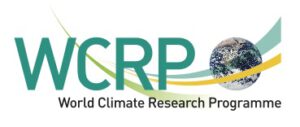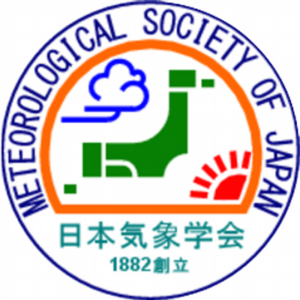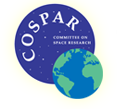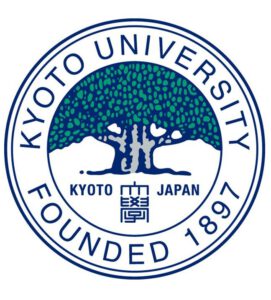The SPARC (Stratosphere-troposphere Processes And their Role in Climate) 2018 General Assembly will be held from 1-5 October 2018 in Kyoto, Japan. General Assemblies are opportunities for SPARC to take stock of what has been achieved, where gaps in the portfolio of research undertaken by SPARC need to be filled, and to define where SPARC needs to be moving to remain responsive to the needs  of both its members and the users of SPARC research products. It will be the sixth such gathering of SPARC scientists from around the globe.
of both its members and the users of SPARC research products. It will be the sixth such gathering of SPARC scientists from around the globe.
Download advertisement poster (PDF, 0.6 MB)
Find conference website
(including Sponsor information)
Reports on the General Assembly:
A blog entry by Ryan Williams: Find report
Find the General Assembly Science program
Confirmed keynote Speakers:
Science Themes:
Atmospheric composition is closely coupled to weather and climate, with gases and particles affecting the radiative balance while being transported around by atmospheric motions. Major areas of interest at the 2018 SPARC General Assembly include short-lived climate forcers, the transport of pollution and composition associated with monsoons and strong convection, stratospheric ozone depletion and recovery, the composition of the upper troposphere and lower stratosphere (e.g., water vapour, ozone, aerosols and cirrus), the impacts of stratospheric aerosols and volcanic eruptions, and the anticipated changes in transport processes and stratosphere-troposphere exchange in a changing climate. These issues will be discussed in the light of the exciting new science topics emerging in the SPARC programme.
Credible climate predictions on a range of timescales from sub-seasonal and seasonal to decadal and centennial are essential when considering how society can respond to the challenges of changing climate. Climate and weather models are being developed to provide consistent predictions across these scales. New results will be presented and discussed on research in this area including, but not limited to, the mechanisms and sources of predictability of regional climate, the role of model errors in limiting predictive skill, and the benefits of resolving the stratosphere for weather and climate prediction.
Atmospheric dynamics are central in determining the response of the surface climate to internal and external forcings. Important topics for this General Assembly include teleconnections and vertical coupling, interactions across timescales from days to decades, the dynamics of storm tracks, annular modes, tropical expansion, and Rossby waves, changes in extreme events, the different responses of dynamical and thermodynamical processes to climate change, and the coupling between moisture, clouds and circulation.
The tropics plays a central role in the global atmosphere, comprising nearly half of its volume and receiving most of the incoming solar radiation. It is a growing area of research and a wide range of issues are relevant to the General Assembly. These include the connections between stratospheric variability and tropical convection, interactions with ENSO and QBO, connections between the tropical tropopause layer and climate, tropical waves and convection, and tropical convective transport and its interactions with chemistry, and cirrus clouds.
Our understanding of changes in climate and atmospheric composition relies on analyses of high quality, long-term observations. A major responsibility of SPARC has been to promote on-going improvements in the observational data sets, coupled with developing new analyses and new understanding. Multi-instrument records are increasingly important for all essential climate variables including composition (water vapour, ozone, aerosols) and the new meteorological reanalyses. Rigorous approaches to their production and analysis are required. These remain topics of central interest in this General Assembly which will also provide a forum to discuss future observational needs.
SPARC’s prime responsibility is to promote international activities in fundamental atmospheric research related to climate. In order to ensure that maximum benefit is derived from this research, it is important to develop good communication with SPARC’s stakeholders. These include regional climate services, assessing the potential needs of the stakeholders (e.g. agriculture, water resources, energy and policy), and evaluating climate risk evaluations for decision-makers.
Find more information on the conference website
Harry Hendon (Bureau of Meteorology, Australia)
Amanda Maycock (University of Leeds, UK)
Johann Muller (Agence Nationale de la Recherche, France)
Laura Pan (National Center for Atmospheric Research, USA)
Olivia Rompainnen-Martius (University of Bern, Switzerland)
Seok-Woo Son (Seoul National University, Republic of Korea)
Don Wuebbles (University of Illinois, USA)
Paul Young (Lancaster University, UK)
Tianjun Zhou (Chinese Academy of Sciences, China)
Masato Shiotani (Kyoto University, Japan)
Shigeo Yoden (Kyoto University, Japan)
We kindly thank our sponsors. (Find GA sponsors)
Documents
Download: 2nd Announcement SPARC GA2018 (214KB)
Collaboration/Joint Meetings
The Conference is being held back-to-back with the Future Earth International Global Atmospheric Chemistry (IGAC) 2018 Science Conference and in parallel with a joint Belmont Forum/JPI-Climate meeting (Joint Programming Initiative “Connecting Climate Knowledge for Europe”). See details on the Conference web page for special treatments for SPARC GA 2018 attendees who attend only the last two days of the iCACGP/IGAC conference and for iCACGP/IGAC conference attendees who attend only the first day of SPARC GA 2018.
Sponsors


co-organisers:



sponsors:

(Inoue Science Foundation)





![]()

![]()

local supporters:



